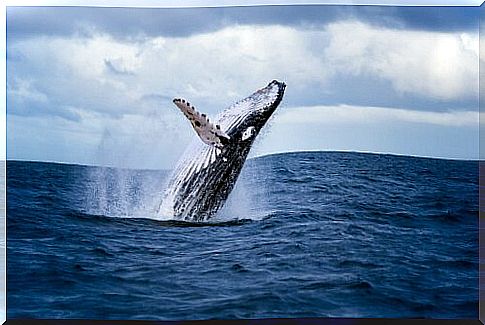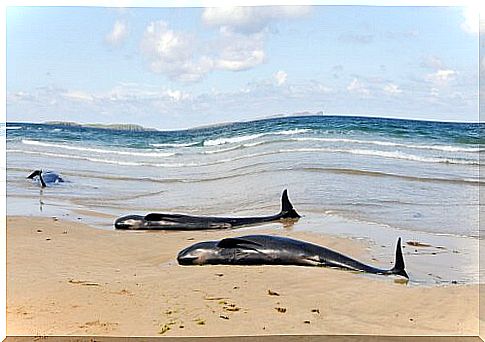Why Does Seismic Surveys Affect Cetaceans?

There are many news and manifestations based on seismic surveys that affect cetaceans. These marine mammals are threatened by these extraction methods, which are prohibited in some places, such as the sanctuary in the Balearic Islands.
What are seismic surveys?
It is often said that seismic surveys affect cetaceans, but many people do not know what these surveys are.
Seismic surveys are a method of locating marine oil or gas reserves within a rock, allowing them to be better exploited.
The acoustic waves are emitted through compressed air guns. When they return, they bring with them information about the different layers of the seabed.
The devices used to emit these waves can generate great sound intensities, which can affect the well-being, physiology or behavior of various marine organisms.

Does research affect other marine animals?
Although the focus of this article is to talk about whether seismic surveys affect cetaceans, the truth is that they also have effects on other living beings that live in the sea, especially fish. This provoked many attempts to stop research in the Mediterranean.
Boney fish, that is, those that have bony spines instead of cartilage, are especially sensitive to seismic surveys. That’s because they have a swim bladder, a gas-filled space that allows them to regulate their buoyancy.
Seismic surveys also affect the hearing of these animals, so there is a great deal of dizziness and loss of hearing and the ability to float, which can be disastrous.
In addition, the practice has economic effects: fisheries decrease between 30% and 50% in regions where this type of seismic survey is carried out.
Not only fish can be affected: sea lions, seals and walruses suffer from hearing loss and behavioral changes, although the effects on these animals have been poorly studied.
In the case of sea turtles, their migration routes can be affected and changes in their social behavior occur. Even giant squids can be affected, with damage to their internal organs.

Do seismic surveys affect cetaceans?
The way whales communicate, it’s impossible to deny that seismic surveys affect cetaceans: we’re talking about animals that need sound not just to communicate but also to swim or hunt.
So, even though it seems unbelievable, it was found that seismic surveys affect cetaceans, even internally; increased gas bubbles damage the liver, kidneys, and even the blood supply.
Auditory structures are the most affected, and even the bones that make up this sense can be fractured.
Injuries can turn animals into completely deaf beings, so species like the blue whale – which is solitary but joins a group thanks to its music – can remain totally alone for life.
Although the changes are not permanent, a change in the sensitivity threshold for a few days could mean the animals’ death, as they need to listen to look for food.
Obviously, although the sound is far away and there is no physical damage, these animals lose the ability to echo-locate boats or communicate due to background noise, in addition to changing migratory routes and causing stress.
Seismic surveys negatively affect cetaceans and are seen as threats to ecosystems, so if we want to protect marine fauna, these activities must be prohibited in protected areas.








